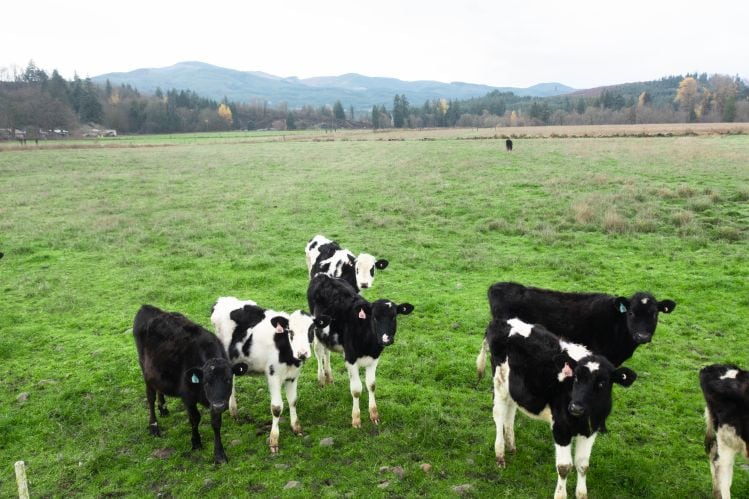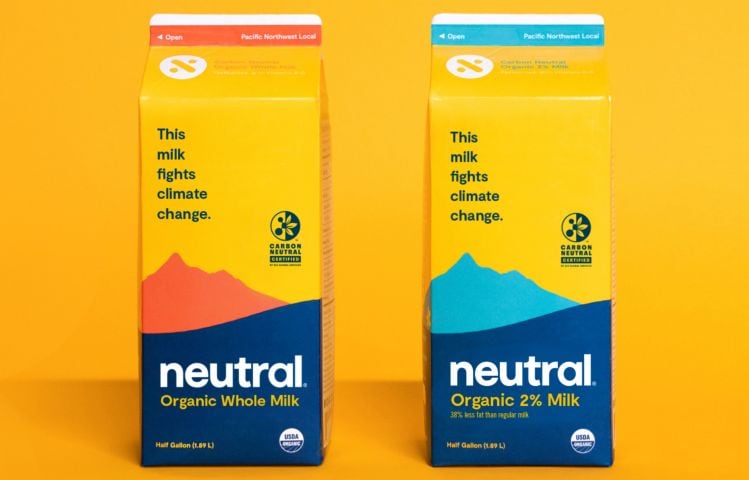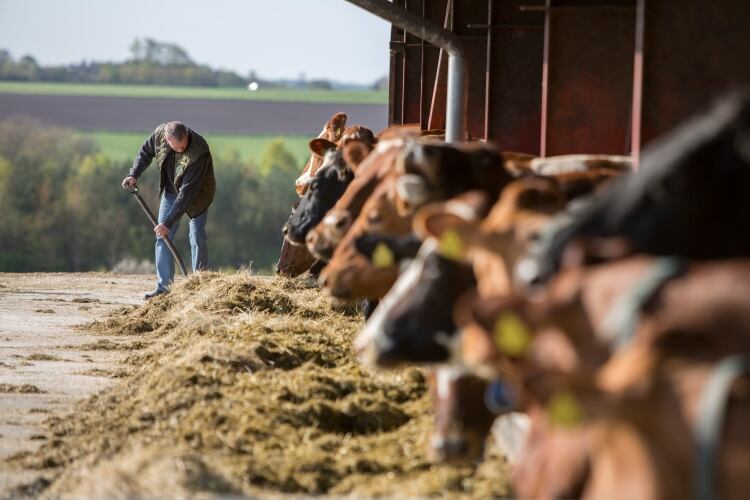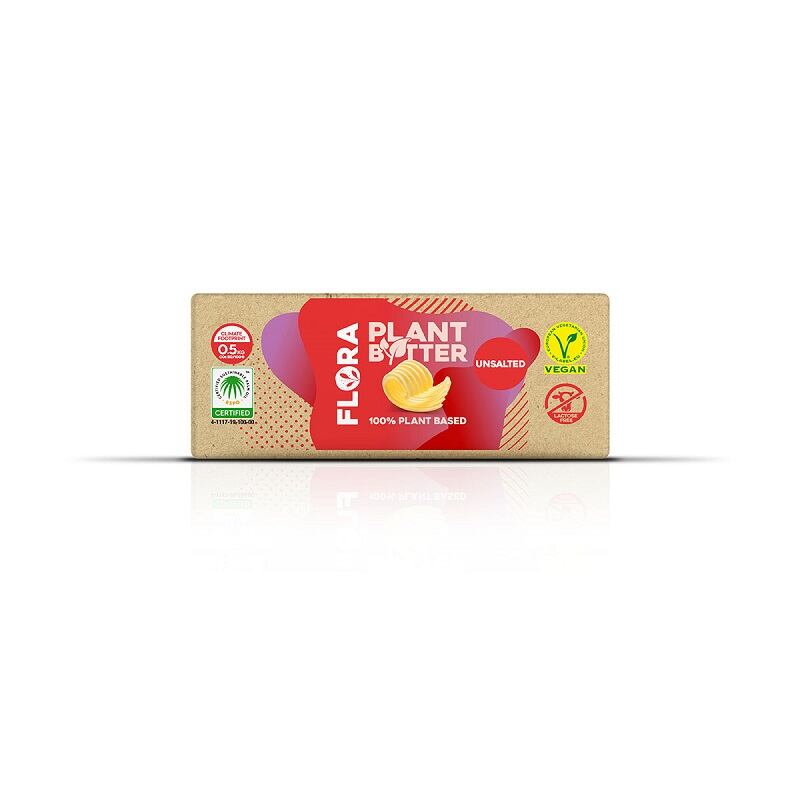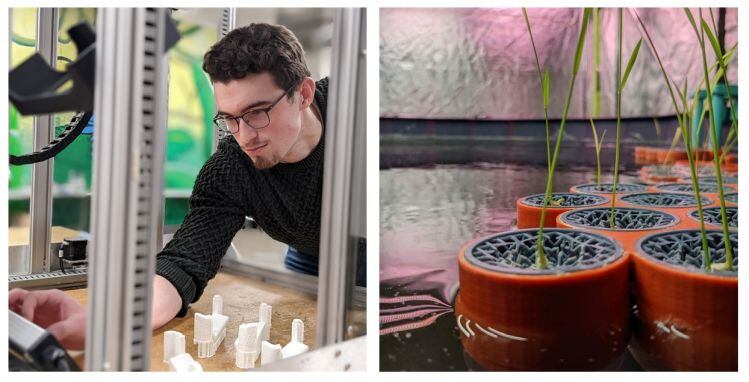Speaking to FoodNavigator-USA after Portland, OR-based Neutral Foods closed a round of funding from celebrities* including John Legend and LeBron James to help it take its SCS certified carbon neutral organic milk to more retailers after a successful launch at Whole Foods, Marcus Lovell Smith said: “I'm a big fan of many of those plant based and alternative products, but dairy milk is still in 93% of households.
“If you think about climate change, you need to meet Americans where they're at, and where they're at is with animal proteins.”
Distributed nationally by UNFI, Neutral Foods, has products on shelf in around 700 stores including Whole Foods, New Seasons Market, Central Market, Earth Fare, and Imperfect Foods, and has recently secured listings at Sprouts, Erewhon, Bristol Farms, and Haggen, said Lovell Smith, an entrepreneur in residence at Harvard who has a background in dairy farming.
‘Consumers have become more sophisticated about offsetting’
So how does it work?
With lifecycle analyses of dairy milk showing that the vast majority of greenhouse gas emissions are generated on farms, Neutral Foods works directly with dairy farmers to reduce emissions, then purchases carbon credits from US dairy farmers "who turn cow emissions into renewable energy" [turning manure into energy via anaerobic digestion] to offset the balance, explained Lovell Smith, whose family has a dairy farm in New Hampshire.
But the focus has to be on addressing the problem at source, not doing something fundamentally unsustainable and then effectively buying carbon neutrality in order to make an eco-friendly label claim, he acknowledged, noting that Neutral only acquires offsets from U.S. dairy farmers that are verified by Climate Action Reserve (CAR), American Carbon Registry, and VERRA.
“I think consumers have become more sophisticated about offsetting. 10 years ago they were OK with buying pieces of windfarms or tropical forests [rather than getting their own house in order]. Today they’re saying, you know, if you're in the cement industry, or the iron and steel industry, or the dairy industry, you should sort yourself out, so everything we do is within our own supply lines.”
He added: “Speaking as a dairy farmer, it's all wrapped up with co-benefits, so projects will bring in multiple threads like animal welfare, biodiversity and so on.”
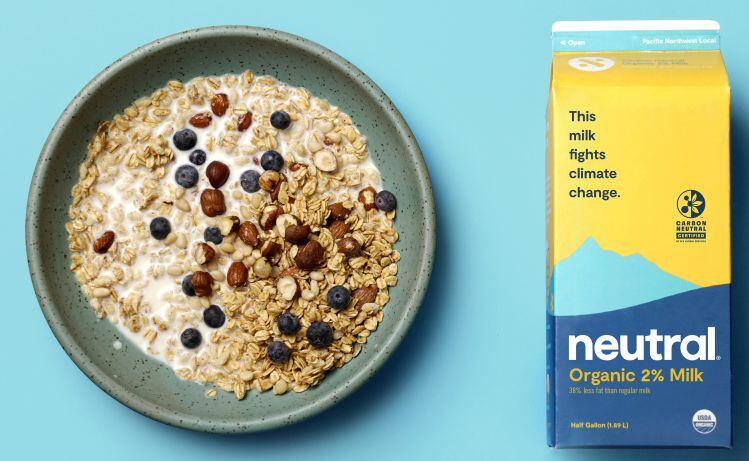
‘We have an expanding number of projects'
On a dairy farm, he said, you can pull multiple levers to reduce GHG emissions depending on what kind of operation you are running. For the farms Neutral Foods is working with, the focus is on three areas: Modifying what animals are fed (for example feed additives can help reduce methane emissions produced in the digestive tracts of ruminants); managing manure more effectively (by for example feeding it into anaerobic digestors to produce biogas, or separating solids from manure before depositing liquid manure into lagoons); and crop management (planting cover crops, reduced tillage etc).
“We have an expanding number of projects mostly with small to medium sized organic, pasture-based family farms, so we did seven projects last year, we're looking to do 50 projects this year, and then 200 projects next year. But it’s farmer-led; you don’t just don't go into farms and tell them what to do.”
But what’s the incentive structure for farmers to engage in these projects? According to Lovell Smith, the core motivation is there, “because they're the ultimate stewards of this land and they are thinking multi-generationally, about what they are passing down to children and grandchildren, but they need help, advice and obviously some investment.”
‘It’s not a huge stretch to think that ultimately, co-ops will pay more for milk that has been produced in a decarbonized way’
He added: “I think ultimately, we could move to a world where incremental payments are made; they already pay more based on things like somatic cell counts [a key indicator in mastitis screening programs] so it’s not a huge stretch to think that ultimately, they'll pay more for milk has been produced in a decarbonized way, but it doesn't happen at the moment.”
Asked about the environmental footprint of industrial-scale grain-fed dairy systems vs small pasture-raised farms, he said grain-fed confined dairy operations will likely continue to result in higher milk production per cow, but also rely on fossil-fuel derived fertilizers and pesticides to produce feed (which then has to be transported to the farm, while waste must also be transported from the farm); while on a pasture-based dairy farm, cattle fertilize their food source and recycle their waste at the same time (by defecating on pasture).
“It's complicated and it’s not always big is bad, small is good. It depends on where you set your system boundaries. You have to look at the sustainability of the feed crops and the nutrient runoff and then the amount of nitrogen inputs [to grow the corn]. But more biodiversity in farms and in and around pastures is really important.”
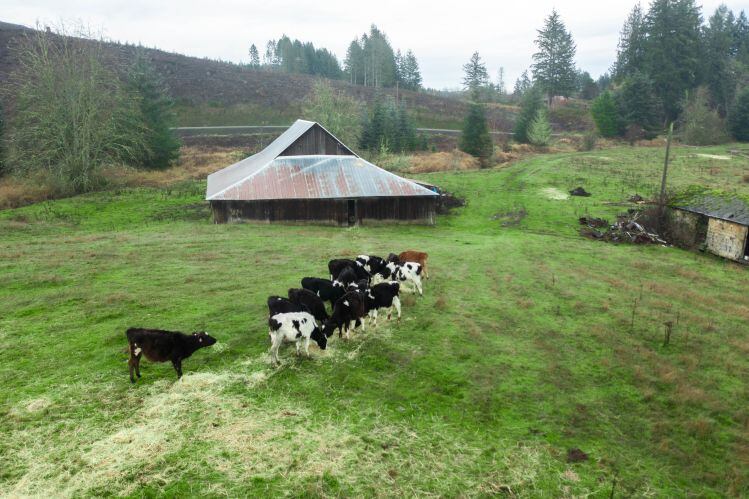
‘We've had a fantastic response from consumers and they’re asking what’s next?’
Thus far, the 'neutral' branded products in bright yellow packaging – which are priced on a par with other premium organic dairy milks - are performing well in Whole Foods and other stores, claimed Lovell Smith, who said the latest celebrity-backed funding round was a “precursor to a much larger Series A round” the company is currently raising.
“We've had a fantastic response from consumers and they’re often asking so what’s next? There is a future where we will see carbon neutral food aisles or blocks of carbon neutral products. But I don't think we've even really started telling our story yet, and that's really the core of this company, trying to make this connection between consumers and farmers in a very visceral way.”
The company is not making any announcements about other dairy categories it might enter right now, but milk is just the beginning, said Lovell Smith, who has just made some key hires including former Whole Foods execs Isabelle Francois as head of revenue, and Jill Visit as executive creative director; and former Organic Valley exec Jim Jarman as VP of product & commercialization.
“We’re in 2% and whole and half and half now, and we’ll be announcing new products in dairy later this year.”
* The latest round – which follows a $4m round led by Mark Cuban and Breakthrough Energy Ventures announced last October- was led by Darco Capital’s David Adelman and backed by LeBron James and his business partner Maverick Carter; David Rubenstein’s Shorewind Capital; musicians John Legend and Questlove; model, author, and entrepreneur, Emily Ratajkowski and her husband producer Sebastian Bear-Mclard; professional soccer player Carlos Bocanegra; and NBA stars Tobias Harris and Kevin Love.
